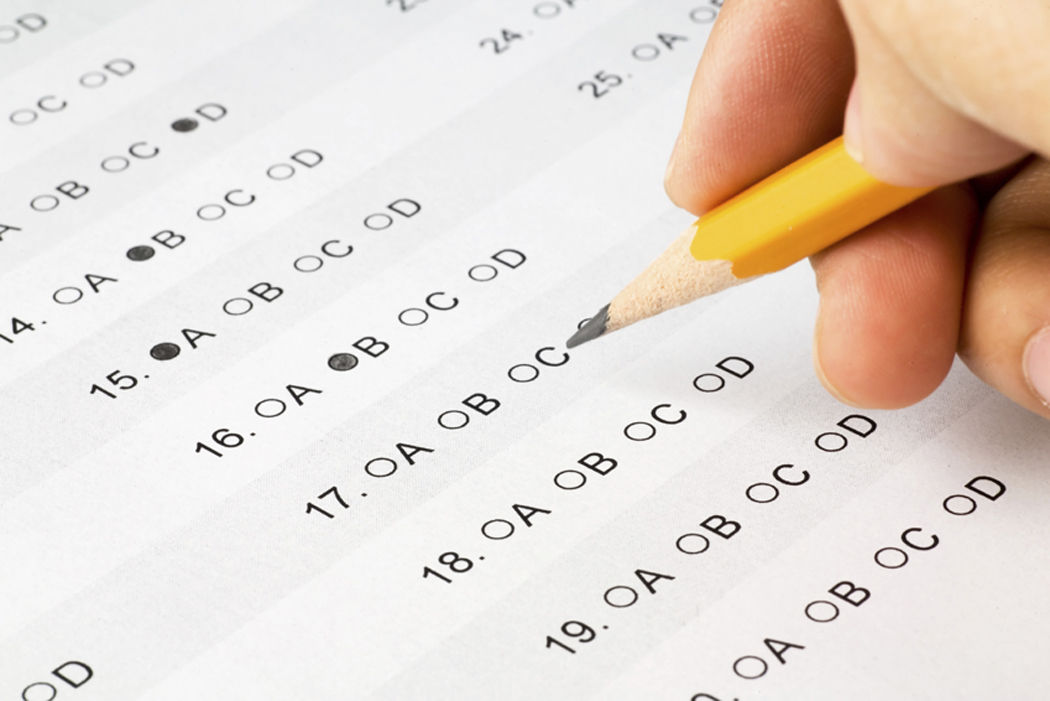More students in North Shore school districts opted out of the state English language arts exam this week, but the movement remains less prevalent locally than across Long Island.
On average, 26.4 percent of students in third through eighth grades chose not to take the exams in the seven districts that released opt-out numbers, up from an average of 24.4 percent in 2016, according to figures obtained by Blank Slate Media.
That figure is still about half Long Island’s total opt-out rate of 50.7 percent, according to a Newsday survey of 92 of the region’s 124 school districts.
Four districts — New Hyde Park-Garden City Park, Sewanhaka, Manhasset and Great Neck — saw opt-out rates increase. The other three — Roslyn, Great Neck and Herricks — saw slight drops.
The Mineola and East Williston school districts said they will not release opt-out data until after the last day of testing on Thursday.
The movement protesting state exams tied to the controversial Common Core educational standards continues to grow despite state education officials’ efforts to assuage concerns.
While the state stopped incorporating scores from the new tests into teacher evaluations in 2015, many parents and teachers remain concerned about the tests’ difficulty, said Stephen Lando, the Great Neck school district’s assistant superintendent for secondary education.
Unlimited time for testing “doesn’t change the fact that the students remain anxious and frustrated by the exams themselves,” Lando said.
A few districts, including Mineola, administered the exams on computers for the first time this year.
Some 36 percent of students New Hyde Park-Garden City Park school district, which teaches kindergarten through sixth grade, opted out of the English tests, up 9 percentage points from 2016.
That’s the largest increase of the seven North Shore districts that reported numbers.
School district officials did not respond to requests for comment on the increase.
The Sewanhaka Central High School District, of which New Hyde Park-Garden City Park is a component district, had 37.7 percent of its seventh- and eighth-graders opt out, up from 33 percent last year.
The increase, the second-largest this year, comes after the district’s opt-out rate tripled between 2015 and 2016.
Sewanhaka school officials declined to comment on the figures until after testing is completed.
About 14 percent of Manhasset school district students opted out, up 2 percentage points from 2016.
The district still had the lowest opt-out rate on the North Shore and one of the lowest on Long Island, according to Newsday’s survey.
The opt-out rate increased slightly in the Great Neck school district to 20.9 percent, up 1.3 percentage points from 2016.
While many parents are still skeptical of the value of Common Core tests, some think they prepare students well for harder exams they take in high school, Lando said.
“I’ve heard the flip side, that it’s really not a big deal and it’s good to know how my child is doing,” Lando said.
The Herricks school district saw its opt-out rate fall slightly to 14.2 percent, from 15 percent last year.
The state’s tweaks to the tests have improved their quality in the past two years, and Herricks parents “continue to see the value” in taking them, Fino Celano, the district’s superintendent, said.
“Hopefully, this progress in assessment design, such as shorting the length of the tests and ensuring that they are developmentally appropriate, will continue in the near future,” Celano said in a statement.
The Roslyn school district’s opt-out rate dropped 3.4 percentage points to 35.6 percent, the largest decline among North Shore districts this year.
Close to half the students in grades six through eight — 48.4 percent — chose not to take the test, according to the district’s tabluation.
About 27.7 percent of Port Washington students opted out of this year’s tests, down from 29 percent last year.
School district officials declined to comment on the opt-out rate.
State education officials could take several steps to reduce opposition to the tests, such as publishing all test questions after the exams are completed and administering different exams based on students’ past performance, Lando said.
Without being able to see all test questions, teachers “can’t truly look at the performance of the students and make adjustments in their instructional practices or see where there are gaps in student learning or practices,” Lando said.
Parents will also have the choice to opt out of the state’s math test for grades three through eight, which will be administered in the first week of May.



